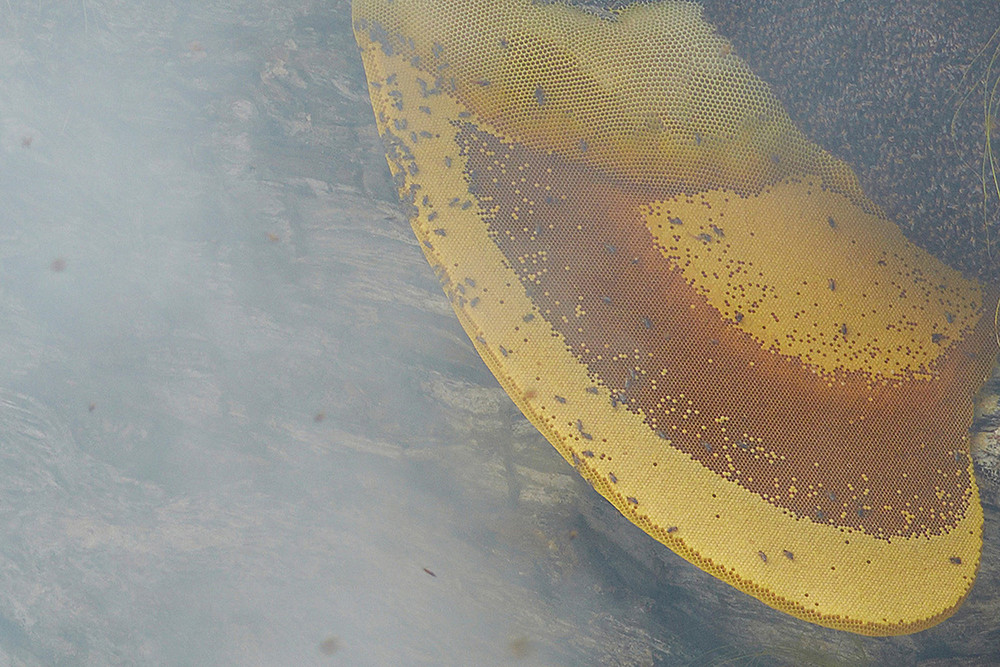|
Ancient Traditional Honey Hunters of Nepal
|
||
|
Andrew Newey, an award-winning UK-based travel photographer, has captured gripping photographs of central Nepalese Gurung tribe members engaged in a dangerous and ancient tradition – honey hunting.
Twice a year, the Gurung honey hunters ascend to the base of cliffs in central Nepal and ascend them to collect honey. They use the same tools that their ancestors did – hand-woven rope ladders and tangos, the long sharp bamboo poles that they use to cut the honey-filled hives off of the face of the cliff and drop them into baskets waiting below. After lighting smoke fires at the base of the cliff to smoke out the bees, they climb their ladders and collect their honey.
Besides the danger of falling, they also happen to be harvesting the honey of the largest honeybee in the world. The Himalayan honey bee can grow to be up to 3 cm (1.2 in) in length. Due to grayanotoxins from the white rhododendrons they feed on in the spring, their spring honey can be intoxicating, and fetches high prices in Japan, Korea and China.
The open cliff-face hives help protect the bees from predators and keeps them warm by exposing them to sunlight.
Honey hunting is among the oldest known human activities. There is an 8,000-year-old cave painting in Spain that portrays a man climbing vines to collect honey. One can imagine that these brave honey hunters’ occupation probably stretches back just as far, if not further.
Aandre Wnewey
|
||
|
|

|
|
| ← Previous picture Next picture → | ||
|
Military Woman Gallery
Must See Places |
||
|
|
||